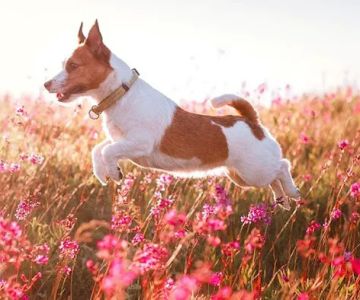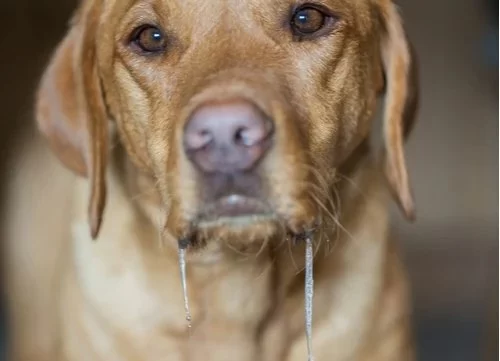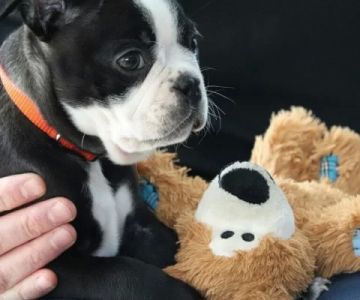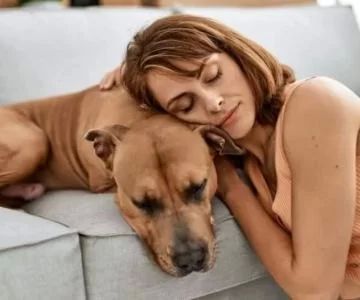Why Is My Dog Drooling Excessively After Eating? Understanding the Signs and When to Worry
- what-s-normal-vs-excessive-drooling - What’s Normal vs. Excessive Drooling?
- top-medical-reasons-behind-dog-excessive-drooling-after-eating - Top Medical Reasons Behind Dog Excessive Drooling After Eating
- when-drooling-signals-a-serious-health-risk - When Drooling Signals a Serious Health Risk
- real-case-how-spotting-drooling-saved-buddy-the-lab - Real Case: How Spotting Drooling Saved Buddy the Lab
- how-to-respond-and-when-to-contact-the-vet - How to Respond and When to Contact the Vet
1. What’s Normal vs. Excessive Drooling?
Let’s start by understanding the baseline: it’s perfectly normal for dogs to drool occasionally, especially when they’re anticipating food or chewing on something tasty. However, if you’ve recently caught yourself asking, “Why is my dog drooling excessively after eating?”—you’re not alone. And it might not be something to ignore.
Excessive drooling after meals could be a red flag, especially if it starts suddenly or is accompanied by other symptoms like pawing at the mouth, refusing food, or vomiting. Knowing what’s typical for your pup is key to spotting trouble early.

621 Larpenteur Ave W, Roseville, MN 55113, USA
See Details2. Top Medical Reasons Behind Dog Excessive Drooling After Eating
2.1 Oral Irritation or Foreign Objects
One of the most common triggers is something stuck in your dog’s mouth—like a piece of bone, stick, or even sharp kibble. These can irritate the gums or tongue, causing them to drool more than usual. Always check the mouth gently if your dog allows.
2.2 Gastrointestinal Upset or Nausea
Gastrointestinal issues, including acid reflux or indigestion, can lead to drooling right after a meal. This is particularly true if your dog eats too fast or consumes fatty or spoiled food. Sensitive stomachs can react quickly and visibly.
2.3 Dental Disease
If your dog is drooling excessively after eating and also shows signs of bad breath, swollen gums, or difficulty chewing, dental problems may be the root cause. Tooth infections, gingivitis, or even a cracked tooth can create constant discomfort during or after meals.
2.4 Allergic Reactions
Food allergies can show up in surprising ways. Some dogs may react to specific proteins or additives with increased saliva production, skin issues, or even vomiting. This is why introducing new food slowly is always advised.
2.5 Oral Tumors or Growths
In more serious cases, tumors in the mouth or throat can interfere with normal chewing and swallowing, leading to hypersalivation. This isn’t common, but it’s not impossible—especially in older dogs. A vet check-up can rule this out.
3. When Drooling Signals a Serious Health Risk
In some cases, dog excessive drooling after eating is a symptom of a larger issue such as poisoning, heatstroke, or esophageal blockages. If your dog suddenly drools a lot and also appears lethargic, distressed, has difficulty breathing, or is vomiting repeatedly—seek emergency care immediately.
Certain toxic foods like grapes, onions, or chocolate can also cause salivation before more severe symptoms appear. Always monitor your pup's environment and diet closely.
4. Real Case: How Spotting Drooling Saved Buddy the Lab
Buddy, a 6-year-old Labrador from Michigan, began drooling excessively after his evening meals. At first, his owner Sarah thought it was due to excitement over food. But when the drooling worsened and he refused breakfast one morning, she took him to Hidden Brook Veterinary.
The vet discovered a fractured molar causing severe pain. A simple dental procedure later, and Buddy was back to wagging and eating normally. Sarah shared, “If I had brushed it off, he could’ve developed a serious infection. I’m so glad I trusted my gut.”
5. How to Respond and When to Contact the Vet
5.1 Immediate Steps You Can Take
If you notice drooling only happens after eating, try switching your dog to soft food for a few days and observe any changes. Inspect their mouth for stuck food or minor injuries, and ensure they’re drinking enough water.
5.2 When to Seek Professional Help
If the drooling persists for more than 24 hours, is paired with other symptoms, or worsens quickly—don’t wait. Reach out to professionals like Hidden Brook Veterinary for a thorough oral and digestive exam. Early diagnosis can prevent bigger problems.
5.3 Preventive Tips
Use slow-feeder bowls to avoid overeating, keep food fresh and consistent, and regularly inspect your dog’s mouth during grooming. Schedule annual dental cleanings and be mindful of any behavioral changes around meal time.
By understanding the causes and knowing when to act, you can protect your pup’s health and ensure every mealtime is safe and satisfying. Don't ignore the signs—sometimes, a little extra drool is your dog’s way of saying something’s wrong.











